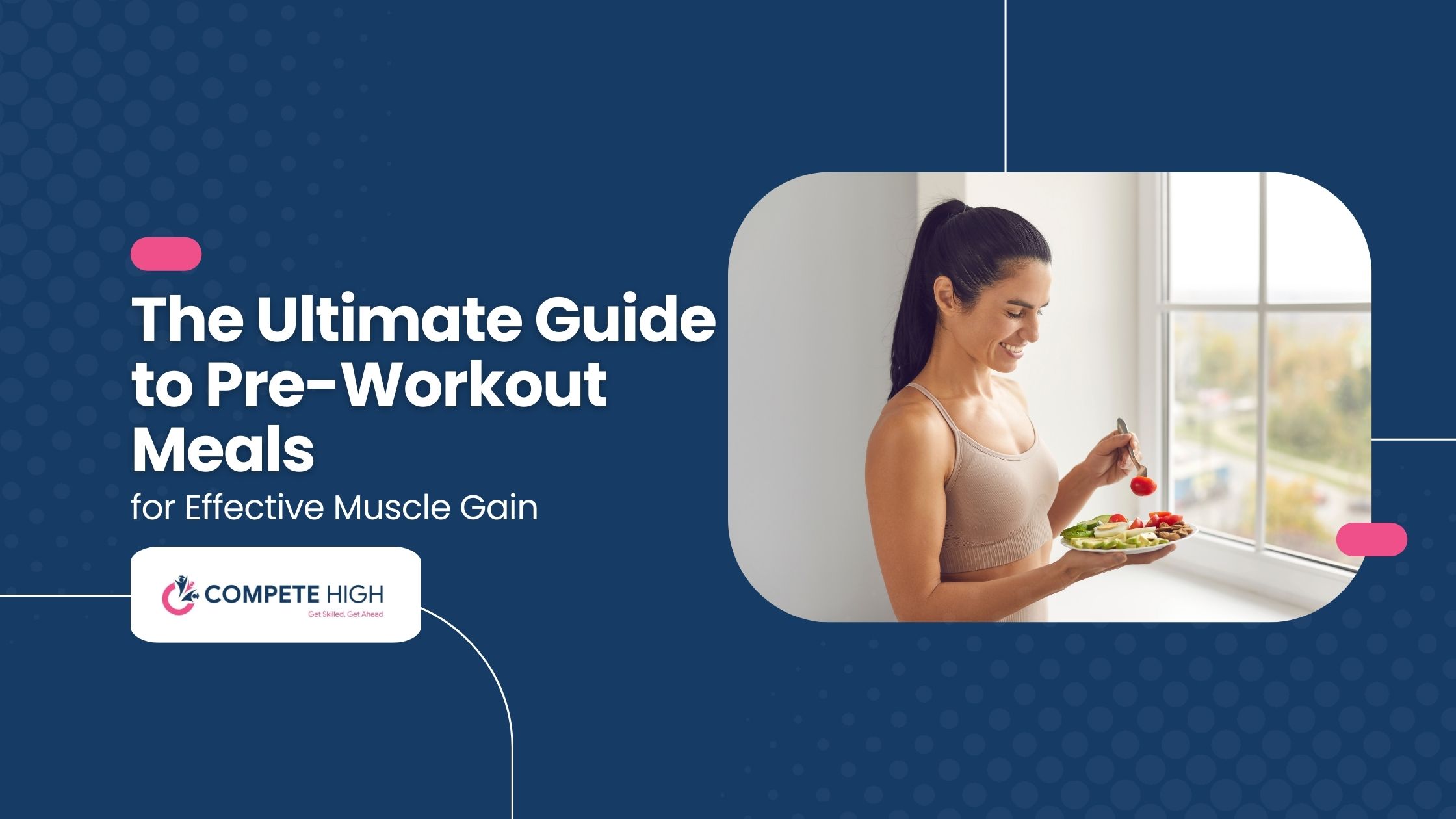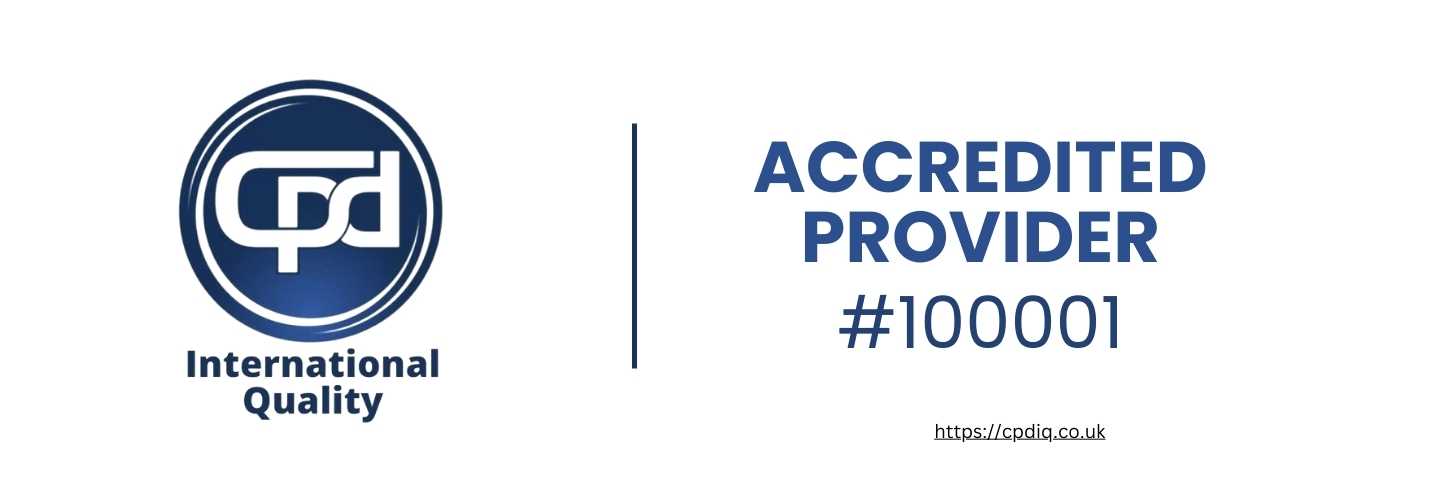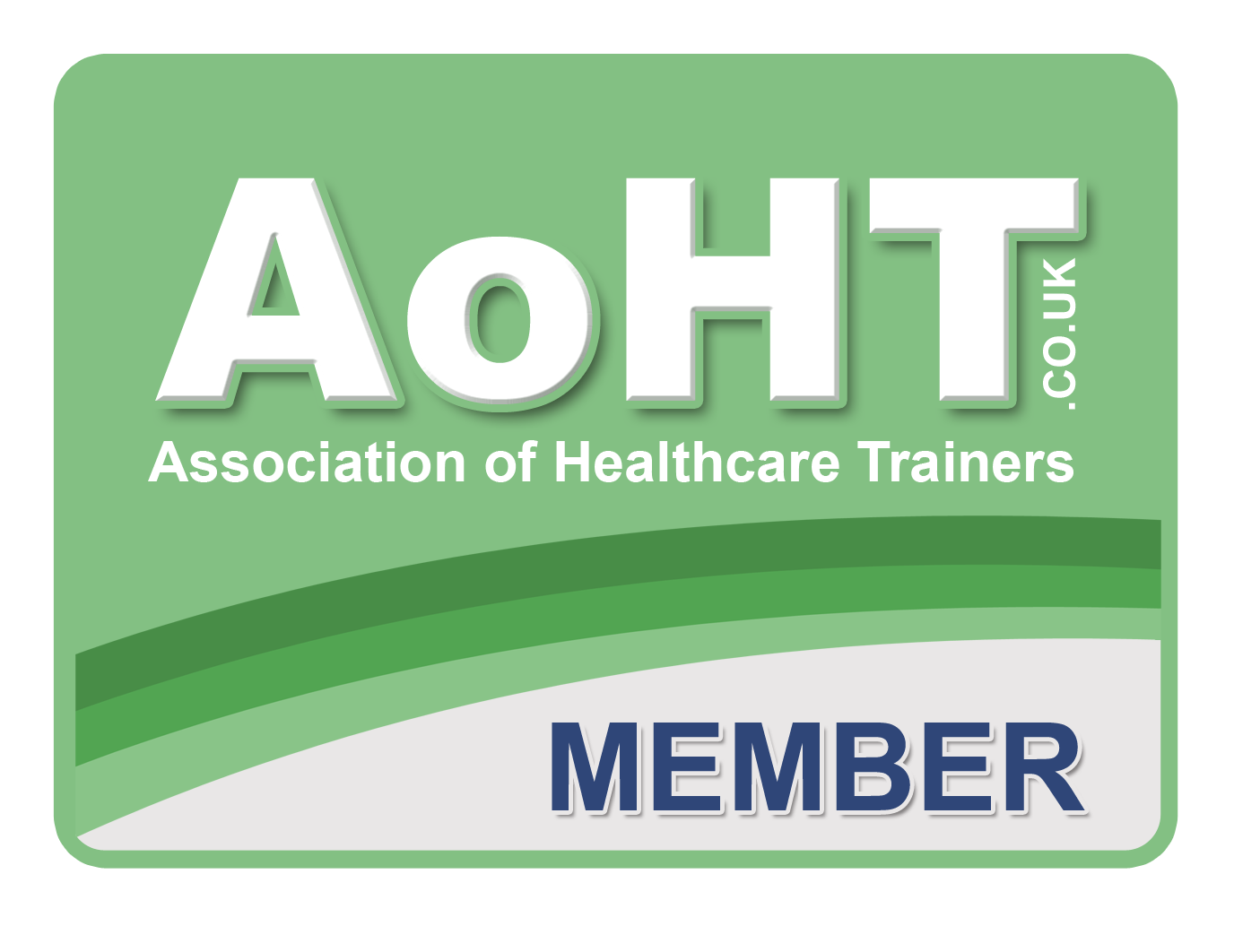
Building muscle effectively requires both a workout routine and proper nutrition since both elements play equally important roles. Many people ignore the importance of the pre-workout meal, which serves to power your body during intense training sessions, boosts endurance levels, and accelerates recovery time.
Choosing proper pre-exercise foods supplies your muscles with essential energy and nutrients, which allows them to function optimally during workouts. Properly balanced carbohydrates and protein with healthy fats lead to better workout results while protecting muscles and enhancing muscle growth.
This guide delivers research-based information about optimal pre-workout meals to support muscle gain while teaching you what foods to eat, the right timing for these meals, and how to adapt your diet according to your fitness objectives. A well-planned pre-workout meal strategy can significantly enhance your results, whether you aim to build muscle mass or endurance while maintaining leanness.
The Science Behind Pre-Workout Nutrition
To achieve optimal muscle growth, you must understand the scientific principles that guide pre-workout nutrition. The nutritional choices you make before exercising provide crucial energy, which enables your body to maintain strength and endurance throughout your workout. Carbohydrates, along with protein and fats, fulfill distinct functions that boost athletic performance while supporting muscle development.
How Food Fuels Your Workout
- Carbohydrates: The Primary Energy Source
Your body relies on carbohydrates as its preferred energy source during physical activity. Eating them prior to exercise enables your body to convert carbohydrates into glucose, which your muscles store as glycogen. Your body accesses its glycogen stores during training to deliver both fast and extended energy output, which helps you lift heavier weights and sustain longer workouts.
- Fast-digesting carbohydrates like fruits, white rice, and white bread deliver rapid energy to your body.
- Slow-digesting carbohydrates from foods such as oats, brown rice, and whole wheat bread provide extended energy for prolonged exercise sessions.
- Protein: Essential for Muscle Growth and Recovery
Muscle repair and growth depend on protein, which is a vital component of every pre-workout meal. Protein delivers amino acids, which serve as the basic units for building muscle tissue, while carbohydrates serve as the body's energy source. Consuming high-quality protein before a workout helps:
- Reduce muscle breakdown during training.
- Enhance muscle recovery post-exercise.
- Muscle protein synthesis requires support to trigger muscle growth.
- Good protein sources: Lean meats along with eggs, Greek yogurt, cottage cheese, and plant-based choices such as tofu and legumes function as excellent protein sources.
- Healthy Fats: Sustained Energy for Longer Workouts
Carbohydrates and protein should be the main components of pre-workout nutrition, but healthy fats can contribute to pre-exercise meals. Fats offer sustained energy through slow digestion, which benefits workouts that extend beyond an hour. Eating excessive amounts of fat too near to exercise can lead to delayed digestion and physical discomfort.
- Best sources of healthy fats: Healthy fats can be found in avocados along with nuts and seeds, as well as olive oil and fatty fish.
Nutrient Timing and Muscle Growth
- The Importance of Eating Before a Workout
Timing your pre-workout meal correctly is crucial for optimizing energy levels and muscle performance. Eating too early may leave you feeling drained, while eating too late can cause digestive discomfort. Ideally:- Larger meals (balanced with carbs, protein, and fats) should be eaten 2-3 hours before training.
- Smaller, fast-digesting meals or snacks should be consumed 30-60 minutes before a workout.
- How Timing Impacts Energy Levels and Protein Synthesis
- Eating a carb-rich meal before a workout prevents muscle fatigue and maintains strength throughout your session.
- Consuming protein before training supplies muscles with amino acids, leading to better recovery and muscle protein synthesis post-workout.
- Proper hydration and electrolyte intake before exercise enhances muscle function and prevents cramps.
By understanding the science of pre-workout nutrition, you can create a strategic meal plan that fuels your workouts, boosts performance, and promotes muscle gain effectively.
Key Components of an Ideal Pre-Workout Meal
An ideal pre-workout meal requires a balanced combination of macronutrients to power your body for peak performance. Knowing the role of carbohydrates, protein, fats, and hydration in pre-workout nutrition helps you maximize muscle development and endurance power.
Carbohydrates: The Primary Energy Source
Your workouts require carbohydrates as the primary macronutrient because they deliver immediate energy to your body through glucose and glycogen forms.
- Fast-Digesting Carbs: Workouts lasting 30-60 minutes benefit from fast-digesting carbohydrates, which supply rapid energy.
- Examples: Suitable sources of fast-digesting carbohydrates for quick energy before workouts include white rice and bananas, along with honey and white bread, as well as fruit smoothies.
- Slow-Digesting Carbs: Slow-digesting carbs are ideal for pre-workout nutrition when exercise begins 2-3 hours later because they offer a steady energy release while maintaining stable blood sugar levels.
- Examples: Good pre-workout carbohydrate sources include oats, whole wheat bread, brown rice, quinoa, sweet potatoes, and beans.
Protein: Essential for Muscle Repair and Growth
Protein supports muscle recovery and repair functions to decrease muscle breakdown during workouts. The intake of protein before exercise activates muscle protein synthesis, which reduces post-exercise soreness and enhances muscle development.
- Best Protein Sources for Pre-Workout Meals:
- Lean meats (chicken breast, turkey, lean beef).
- Eggs and egg whites.
- Dairy (Greek yogurt, cottage cheese).
- Plant-based options (tofu, tempeh, legumes).
Healthy Fats (Optional): Sustained Energy for Longer Workouts
While carbohydrates and protein are more critical pre-workout nutrients, healthy fats provide valuable sustained energy during extended exercise sessions. A high fat intake just before exercising can slow digestion while leading to stomach discomfort.
- Best Sources of Healthy Fats for Pre-Workout Nutrition:
- Avocados.
- Nuts (almonds, walnuts, cashews).
- Seeds (chia seeds, flaxseeds, sunflower seeds).
- Olive oil, coconut oil, and nut butter.
Hydration and Electrolytes: A Crucial Pre-Workout Component
Your workout performance depends equally on adequate hydration as it does on proper nutrition. Muscle cramps, fatigue, and decreased endurance occur when the body lacks sufficient hydration.
- Water: Water functions to maintain blood volume while also regulating body temperature and delivering necessary nutrients to muscular tissues.
- Electrolytes (Sodium, Potassium, Magnesium): Electrolytes such as sodium, potassium, and magnesium help prevent dehydration and muscle cramps, particularly during intense physical activities.
- Sources: To replenish electrolytes and maintain hydration levels, you can choose coconut water alongside electrolyte drinks and sports drinks, as well as bananas, spinach, and nuts.
Best Pre-Workout Meal Ideas Based on Timing
The time at which you eat your pre-workout meal determines your energy levels and digestive comfort. Here are the best meal options based on how long before your workout you plan to eat:
Meals to Eat 2-3 Hours Before a Workout
A full meal containing complex carbs, lean protein, and healthy fats should be eaten 2-3 hours before your workout for optimal energy and muscle support.
A pre-workout meal consumed several hours before exercise should combine complex carbohydrates with lean proteins and healthy fats to sustain energy levels and support muscle function.
Example Meals:
- Grilled chicken with quinoa and steamed vegetables.
- Salmon with brown rice and avocado.
- Whole wheat toast served with an egg omelette and mixed berries on the side.
- Tofu stir-fry with brown rice and vegetables.
Meals to Eat 30-60 Minutes Before a Workout
Optimal meal choices for consumption 30-60 minutes before starting your workout.
When consuming food near your workout time, select fast-digesting carbohydrates combined with moderate protein to maintain performance levels without feeling sluggish.
Example Meals:
- Greek yogurt with honey and granola.
- A banana with peanut butter.
- Oatmeal with almond butter and berries.
- Make a protein shake using banana, protein powder, and almond milk.
Quick Snacks for Last-Minute Fuel (15-30 Minutes Before Workout)
If you don't have much time before your workout, choose quick snacks that offer fast energy without causing digestive issues.
People who don't have much time should choose a light snack that digests quickly and offers immediate energy.
Example Snacks:
- A protein shake with a banana.
- A handful of almonds and dates.
- Rice cakes with honey and peanut butter.
- Choose an energy bar that contains minimal fiber and fat.
What to Avoid in Pre-Workout Meals
The selection of proper pre-workout foods matters as much as understanding which foods to exclude from your pre-workout routine. Some foods harm digestion and energy levels while lowering performance, which reduces workout efficiency. It's essential to understand what foods to avoid when preparing for your gym session.
1. High-fat and Heavy Meals: Sluggishness and Slow Digestion
Fat functions as an essential macronutrient that contributes significantly to hormone production and maintains energy levels. Eating too much fat before exercising slows digestion, which results in sluggishness and bloating during your workout.
- Why avoid high-fat foods before a workout?
- The digestion process for fat consumes more time compared to both carbohydrates and protein.
- When heavy meals stay in the stomach for hours, they draw energy away from muscles.
- Consuming a high-fat meal before exercising can cause discomfort because it leads to cramping and bloating while making you feel sluggish.
- Examples of foods to avoid:
- French fries as well as fried chicken and any fast food items.
- High-fat dairy (cream, full-fat cheese, butter).
- Examples of fatty meats to avoid include pork belly, lamb cuts, and high-fat beef.
- Large amounts of nuts or nut butter.
- Better alternative:
- Select lean proteins and complex carbohydrates as alternatives to high-fat meals to power your workout more effectively.
2. Sugary Foods and Drinks: The Blood Sugar Rollercoaster
People often choose sugary snacks and energy drinks before exercising because they believe these foods provide immediate energy benefits. Simple sugars deliver quick energy but result in an energy drop, which exhausts your body during exercise.
- Why avoid excessive sugar before a workout?
- Consuming sugary foods results in a quick rise in blood sugar levels and then a severe drop, which causes fatigue and dizziness.
- Consuming large amounts of sugar before exercising can result in digestive problems, particularly when engaging in high-intensity training.
- Too much sugar consumption leads to decreased effectiveness of the body's fat-burning energy process.
- Examples of foods and drinks to avoid:
- Candy, pastries, and sugary cereals.
- Sugary energy drinks and soda.
- High-sugar smoothies and fruit juices.
- Artificially sweetened processed snacks.
- Better alternative:
- Choose natural sugar sources such as fruits (bananas, apples, berries) for immediate energy because they contain fiber and micronutrients that help avoid sugar crashes.
3. Excessive Fiber: Digestive Discomfort During Exercise
Fiber functions as a vital nutrient that aids in digestion while promoting gut health. Too much fiber consumption before exercise produces bloating and stomach pain, which can disrupt your workout performance.
- Why avoid excessive fiber pre-workout?
- The digestion-slowing properties of fiber can lead to feelings of fullness and stomach discomfort when exercising intensely.
- This condition results in bloating and stomach cramps, which can make physical exercise uncomfortable.
- The breakdown process for high-fiber foods is slower, which can result in feelings of weightiness and tiredness.
- Examples of high-fiber foods to avoid before exercise:
- Consuming significant portions of raw vegetables like broccoli and cauliflower alongside Brussels sprouts.
- High-fiber legumes and beans.
- Bran cereals and fiber bars contain high levels of fiber that can lead to digestive issues during exercise.
- Flaxseeds and chia seeds in large amounts.
- Better alternative:
- Choose meals with moderate fiber content that provide easily digestible carbs and protein, such as oatmeal with fruit or banana with yogurt, instead of high-fiber options.
Customizing Your Pre-Workout Nutrition Based on Goals
The specific requirements of pre-workout nutrition vary depending on individual fitness objectives such as muscle gain, fat loss, or improved endurance performance.
1. For Bulking and Muscle Gain: Higher Calorie Intake with Balanced Macros
To achieve muscle growth and bulk up successfully, your pre-workout meal needs to be calorie-rich while including balanced amounts of carbs, protein, and fats to maintain energy levels and encourage muscle development.
- Key pre-workout nutrition strategies for muscle gain:
- Your training meal should be consumed 2-3 hours before workouts and include complex carbohydrates with protein and healthy fats.
- Feed your body with carbohydrates before weight training to restore glycogen levels for high-intensity workouts.
- Your pre-workout nutrition should contain 20-30 g of protein to support muscle growth and recovery.
- Incorporate moderate amounts of healthy fats to increase caloric intake while maintaining digestive speed.
- Best pre-workout meals for bulking:
- Grilled chicken with brown rice and avocado.
- Oats with protein powder and almond butter.
- Salmon with quinoa and roasted vegetables.
- Whole wheat toast with eggs and avocado.
2. For Lean Muscle and Fat Loss: Emphasizing Protein with Moderate Carbs
To achieve lean muscle growth and fat reduction, you should eat meals high in protein but only moderate in carbohydrates for workout fuel while keeping calories low.
- Key pre-workout nutrition strategies for fat loss:
- Eat lean proteins to support muscle retention.
- Select meals with moderate carbohydrate content to sustain your energy while avoiding unnecessary calorie consumption.
- Avoid excess fat to keep digestion smooth.
- Keeping hydrated helps stop muscle cramps and decreases fatigue.
- Best pre-workout meals for lean muscle and fat loss:
- Greek yogurt with berries and honey.
- Egg whites with whole wheat toast.
- Make a smoothie by blending protein powder together with banana and almond milk.
- A turkey sandwich cooked to perfection on whole wheat bread.
3. For Endurance Workouts: Higher Carb Intake for Sustained Energy
The consumption of carbohydrates is essential for athletes in endurance sports because it maintains energy levels during extended training sessions.
- Key pre-workout nutrition strategies for endurance:
- Consume a meal rich in carbohydrates 2-3 hours before exercise to power through extended training sessions.
- Prioritize slow-digesting carbs for steady energy.
- Include moderate protein to prevent muscle breakdown.
- Maintain adequate hydration levels and electrolyte balance before engaging in physical activity.
- Best pre-workout meals for endurance training:
- Oatmeal with banana and almonds.
- Grilled chicken and steamed vegetables served alongside brown rice.
- Lean turkey meat sauce served over whole wheat pasta.
- A protein-rich smoothie that combines berries with Greek yogurt.
The Role of Supplements in Pre-Workout Nutrition
Whole foods remain your essential pre-workout nutrition base, but supplements enhance performance and endurance while supporting muscle growth with proper use. By learning about how whey protein, amino acids, creatine, beta-alanine, and pre-workout stimulants work, you can improve your training results and increase muscle development.
Whey Protein and Amino Acids: Essential for Muscle Growth
Optimal timing and application of whey protein for pre-workout benefits
Many people choose whey protein for pre- and post-workout supplementation because it digests quickly while delivering abundant amino acids and maintaining high bioavailability.
- Why Whey Protein is Effective Before a Workout:
- This supplement delivers quickly absorbed protein, which helps to stop muscle breakdown.
- This process enhances muscle protein synthesis, which leads to improved muscle repair and growth.
- Helps maintain anabolic (muscle-building) conditions during training.
- How to Use Whey Protein Before a Workout:
- Take in 20-30 grams of whey protein 30-60 minutes before exercising to achieve optimal absorption.
- You should blend whey protein with water or almond milk to avoid bloating before physical activity.
- Pairing whey protein with carbohydrates like bananas or oats will provide you with lasting energy.
The Role of Essential Amino Acids (EAAs) and Branched-Chain Amino Acids (BCAAs)
Essential Amino Acids (EAAs) and Branched-Chain Amino Acids (BCAAs) play a critical role in protein synthesis and support muscle repair and growth.
Proteins are constructed from amino acids, which help repair muscle tissue. Athletes commonly use either EAAs or BCAAs to improve their performance and recovery capabilities.
- Benefits of EAAs and BCAAs Before a Workout:
- Minimize muscle protein degradation while enabling quicker recovery periods.
- Enable muscles to receive immediate access to amino acids for energy support.
- Supplement your workout routine with essential amino acids to minimize muscle soreness and fatigue.
- How to Use EAAs and BCAAs Pre-Workout:
- Prepare your pre-workout drink by combining 5-10 g of BCAAs with water and consume it 15-30 minutes before exercise.
- Optimal usage occurs during fasted training sessions or in scenarios with insufficient protein consumption.
Creatine and Beta-Alanine: Performance Enhancers
Creatine: Boosting Strength and Power
The supplement creatine stands as the most extensively researched option available for promoting muscle development and boosting athletic performance. Creatine boosts ATP (adenosine triphosphate) production, which provides energy to muscles during intense workouts such as weightlifting and sprinting.
- Benefits of Creatine Before a Workout:
- Enhances strength, power, and endurance.
- Increases muscle hydration, leading to better performance.
- Supports faster muscle recovery between sets.
- How to Use Creatine Pre-Workout:
- Consume 3-5 grams of creatine monohydrate between 30 and 60 minutes prior to your workout session.
- The best results for creatine supplementation happen when you follow a daily routine rather than taking it solely before exercise sessions.
- For improved absorption, combine creatine with water or carbohydrate sources such as fruit juice.
Beta-Alanine: Reducing Fatigue and Improving Endurance
Beta-alanine functions as an amino acid that reduces muscle fatigue through its ability to elevate carnosine levels, which work to buffer the acid buildup in muscles. High-rep weightlifting and endurance training programs benefit greatly from this approach.
- Benefits of Beta-Alanine Before a Workout:
- The compound delays muscle fatigue through its ability to buffer the accumulation of lactic acid.
- It creates better muscular endurance, which supports longer and more powerful workouts.
- High-intensity exercise can experience less muscle-burning sensation when beta-alanine is used.
- How to Use Beta-Alanine Pre-Workout:
- You should consume 3-6 grams of beta-alanine between 30 and 60 minutes before your workout session.
- Commonly included in pre-workout supplements.
- A harmless tingling sensation known as paresthesia may occur, but it will fade away with time.
Pre-Workout Drinks and Stimulants: Energy and Focus Boosters
Pre-workout drinks provide stimulants such as caffeine and nitric oxide boosters together with nootropics, which improve energy levels, mental concentration, and physical stamina. However, they also come with potential downsides.
The Pros and Cons of Caffeine-Based Pre-Workout Supplements
- Pros of Caffeine Before a Workout:
✔ Increases energy and alertness.
✔ Enhances fat oxidation, promoting better endurance.
✔ Improves reaction time and mental focus.
✔ These supplements lessen the perceived physical exertion during exercise sessions.
- Cons of Caffeine Before a Workout:
❌ Sensitive people may experience jitters, anxiety, or heart palpitations as side effects.
❌ Consuming caffeine pre-workout too close to exercise may result in digestive discomfort.
❌ Excessive consumption results in energy crashes.
- How to Use Caffeine-Based Pre-Workouts:
- Consume 100-300 mg of caffeine within a 30- to 45-minute window before your workout session.
- Do not consume caffeine late during daylight hours to avoid disrupting your sleep patterns.
- To reduce potential side effects, make sure to combine caffeine with adequate hydration.
Other Common Pre-Workout Ingredients and Their Benefits
- Nitric Oxide Boosters (L-Arginine, L-Citrulline): L-Arginine and L-Citrulline are nitric oxide boosters that work to enhance muscle pumps by increasing blood flow.
- Tyrosine & Theanine: The combination of Tyrosine and Theanine helps maintain mental focus and enhances cognitive performance.
- Electrolytes (Sodium, Potassium, Magnesium): Electrolytes, including Sodium, Potassium, and Magnesium, help to avert dehydration and muscle cramps.
Conclusion
The nutrition you consume before working out significantly affects muscle development and strength while enhancing endurance and workout performance. Optimal training efficiency combined with muscle preservation and quicker recovery results from using the correct mix of carbohydrates, protein, and sufficient hydration. A proper pre-workout meal plan designed according to your specific goals will help you reach the best possible outcomes.
Key Takeaways:
✔ Workouts require carbohydrates for energy and to avoid fatigue.
✔ Protein plays a crucial role in repairing muscles and supporting both their growth and recovery processes.
✔ Effective hydration and electrolyte balance help prevent muscle cramps and preserve proper muscle function.
✔ The timing of your meals relative to your training schedule should guide your food choices.
✔ Consume moderate amounts of fats, sugar, and fiber before workouts to prevent feeling sluggish and experiencing discomfort.
✔ Performance can be improved through whey protein supplements, creatine, and caffeine pre-workouts, but these need to support an already balanced nutritional plan.
Each individual requires a distinct pre-workout meal strategy, which means testing different options and observing physical responses to determine the best fuel source. Experiment with suggested meal plans and adjust portions and timing to align with your fitness objectives before fine-tuning your nutritional approach for enhanced strength and muscle growth.
👉 Begin your fitness journey now by selecting a balanced pre-workout meal that meets your fitness targets to boost your training performance. 💪🔥










